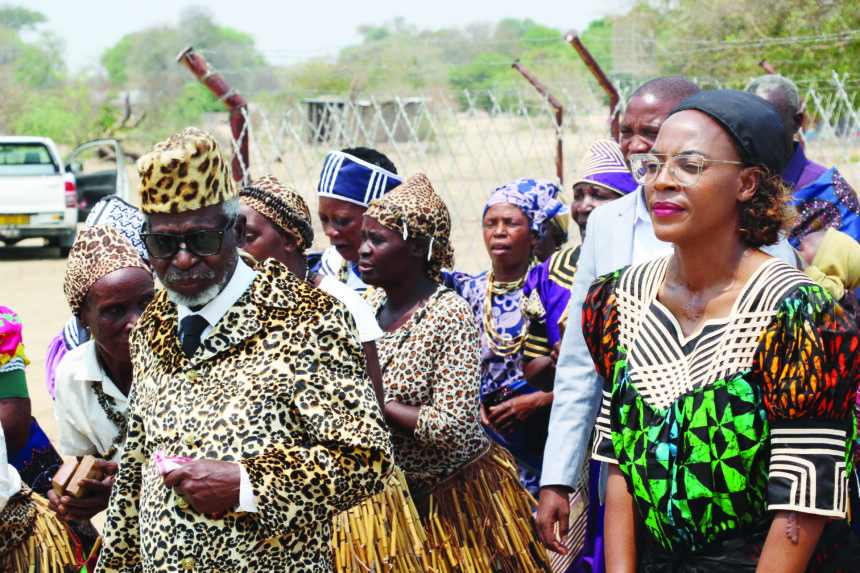CHOI – Mfumu Joseph Tembwe Mayuni III of the Mashi Traditional Authority has said his area of jurisdiction remains one of the most underdeveloped in the Zambezi region and the country at large.
He pointed out a lack of potable water, lack of electricity, long distances between schools, lack of community projects, and claimed discrimination in sharing of resources from the conservancies as some of the challenges.
Mayuni made these remarks on Sunday during the celebration of the Tulikonge Annual Cultural Festival at his traditional headquarters in Choi.
“We remain one of the most marginalised communities in Namibia, with poor representation in government decision-making structures and a lack of voice. As a result, my community remains relatively poor by comparison,” stated Mayuni.
He added that “the Bafwe community promotes co-existence and mutual respect between communities in the interest of peace.” He also called on the government to swiftly address the challenges of overlapping boundaries in the region.
“Land is a precious resource that can contribute to enhancing economic growth and, therefore, human development. This concern had been raised during the second National Land Conference in 2018 and was also emphasised in the 2020 report on the Presidential Commission of Enquiry in Claims of Ancestral Land.
It has been my hope that since the report was released, the government will swiftly address the challenge of overlapping boundaries,” stated Mayuni.
Speaking at the same occasion, deputy minister of environment, forestry and tourism Heather Sibungo, who was the guest of honour, stated that fostering partnerships between different traditional authorities and key stakeholders can create frameworks that support sustainable livelihoods without compromising the natural heritage.
“As we gather here today, with representatives from a vast array of stakeholders, I urge us all to make use of every little opportunity that you get to engage in constructive dialogue. Let us think about how we can bring in enterprise development to our gatherings of this nature. What are the opportunities that we can explore to attract more visitors, who can spend money in our local economy?” implored
Sibungo.
The environment deputy minister further thanked Mayuni for being a firm believer in passing down traditional knowledge and practices from generation to generation.
She called on the Bafwe community and the country at large to continue living in harmony with nature, as it is a necessity for the survival of people.
“As we have gathered to celebrate our culture and traditions, let us remain steadfast in our collaborative efforts to ensure that our shared vision for sustainable development becomes a reality. Together, we can build a future where both people and nature thrive side by side,” stated Sibungo.
The celebrations of the cultural festival marked 27 years since the Mashi Traditional Authority decided to break away from the Mafwe Traditional Authority, and 20 years since the government recognised Mayuni as the chief of Bafwe people in Mashi district.
*Aron Mushaukwa is an information officer at MICT Zambezi.



